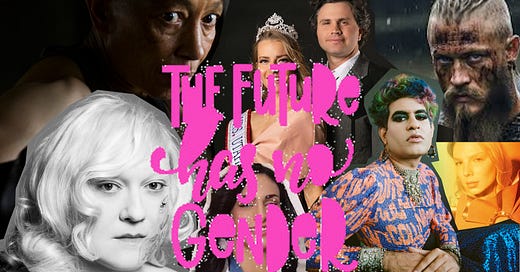Gender is a topic I feel I have grossly neglected. Not just when it comes to the bigger picture. I have also been too complacent on a micro, personal level. Gender was integral to my academic endeavours in the fields of fashion and cultural studies. And yet for over a decade I have leaned back when it comes to gender politics. This past week I have started jotting down ideas. My associative way of thinking has lead to a train of thought that is too myriad and to meandering to tie together in one logical piece. So, for now I have cut it up into more digestable bites:
From Tomboy to Village Virgin: – Introduction to gender identity, based on my own body and life experiences.
In the Ring: Imane Khelif, J.K. Rowling, and Michelle Aboro– Examines cultural, societal, and political tensions surrounding gender identities in female boxing.
Anohni and Valentin – Reflects on the fluidity of gender through artistic and personal transitions.
Dementia and Gender Identity – Addresses cognitive decline and the challenges it poses to identity, especially for transgender people.
Getting Dressed: The End of Subversion? – Analyzes how fashion reflects (or confines) gender expressions and challenges.
Tradwives and Warriors: Representation of Identities – Contrasts traditional and radical gender roles and expectations through social media and popular TV series.
What’s Next?: Can We Embrace a Truly Inclusive Society?. Summary of key themes and pointing towards potential future directions in gender politics, inclusion, and representation.
I know that for a comprehensive treatment of gender politics, I would have to include the following:
Historical Perspective: A brief exploration of the history of gender roles and identity could offer deeper context to the current debate.
Intersectionality: Explore how race, class, and disability intersect with gender identity, which might help to further nuance your essays.
Legal and Policy Frameworks: Discuss how laws and policies (both progressive and regressive) shape the lived experiences of transgender and non-binary individuals.
Global Perspectives: International examples to highlight how gender identity is approached differently across cultures and countries.
I will embrace history and law, but will have to park intersectionality and global perspectives. I don’t feel I am qualified yes based on current knowledge and would have to invest in reading and research that I have to reserve for other projects.
Comments and questions are welcome on everything I write and share, but particularly here.





